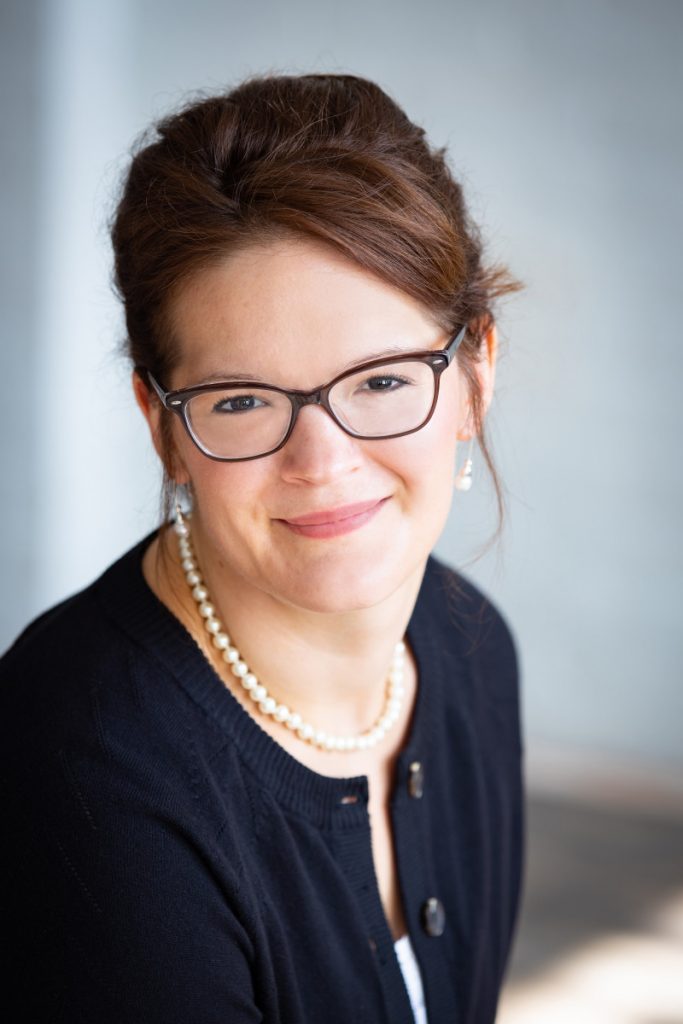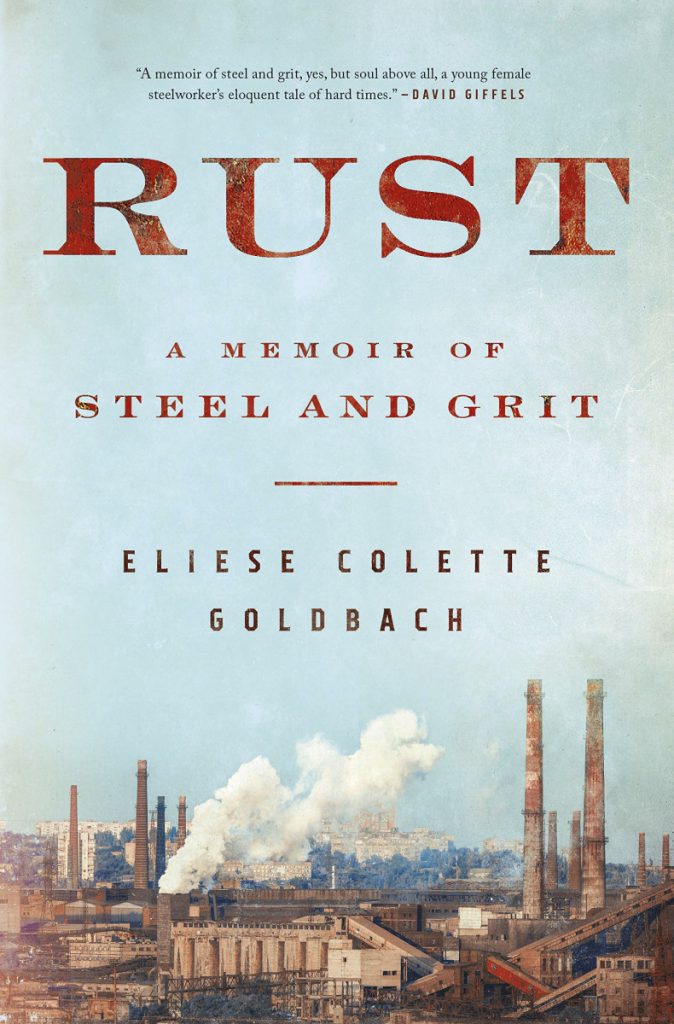SARAH VEST – STAFF WRITER

“Steel is the only thing that shines in the belly of the mill,” writes Eliese Colette Goldbach in her memoir, Rust: A Memoir of Steel and Grit, that was forged in the same flames she labored over as a steelworker.
Goldbach received a master of fine arts degree in nonfiction from the Northeast Ohio Master of Fine Arts Program. Her writing has appeared in publications such as Ploughshares, Western Humanities Review, The Alaska Quarterly Review, McSweeney’s Internet Tendency and The Best American Essays 2017. She has received the Ploughshares Emerging Writer’s Award and a Walter Rumsey Marvin Grant from the Ohioana Library Association. Her Week Nine discussion for the Chautauqua Literary and Scientific Circle, based on her book, is available for streaming now on the CHQ Assembly Video Platform.
Rust tells Goldbach’s story of working in the steel industry at a mill that represented everything she had been trying to escape from in her conservative, Christian hometown. The mill was also her only shot at financial security in a forgotten and economically devastated part of America.
According to Goldbach, she began writing what would eventually become Rust in the middle of 2016, around when Donald Trump was beginning to have success in his presidential campaign. She said everybody was looking at the Rust Belt and industrial workers, wondering why they were interested in and supporting Trump.
Goldbach felt she had a unique viewpoint of that world, having grown up in the Rust Belt and also having left it behind when she went off to college. She also felt a personal desire to better understand her colleagues. She wanted to bring the world of the steel mill to people who might not otherwise understand it.
Goldbach has been interested in writing nonfiction since she was an undergrad, and has frequently used it to work through difficult things that have happened in her life, such as having bipolar disorder and being sexually assaulted.
“I think nonfiction has always been a way to give myself a sense of power over those things and also use my story to maybe help other people with their own struggles,” Goldbach said. “I’ve always just been drawn to nonfiction. Even when I try to write fiction, it ends up being like thinly veiled nonfiction, so it just kind of felt natural to talk about my own personal experience in that way.”
Goldbach is aware of other books like Hillbilly Elegy: A Memoir of a Family and Culture in Crisis by J.D. Vance — books attempting to do similar things and tell similar narratives that she tells with Rust — but she felt the need to put her own stamp on it.

“We talked about (miners and steelworkers) only as people who don’t want to lose their jobs, people who don’t want to lose the money that is tax dollars, things like that,” Goldbach said. “These things are also an identity for people, and I think that that was something I really wanted to get across.”
The narrative that frequently gets left out is one of beauty and nuance, Goldbach said. People who don’t exist in the world of steelworkers miss out on the sense of solidarity and community that these kinds of jobs create, and she wanted to bring those relationships to the surface and humanize an industry that is easy to demonize for its negative environmental impacts.
“My time working with everyone at the mill was really wonderful and … my favorite part of the job was to be with these other people,” Goldbach said. “When you’re writing about someone, you look at them a little bit more closely than you do in your daily life; their quirks, the things they say, and what they represent about a place, a job or people.”
Fitting in with the Week Nine’s theme of “Resiliency,” the writing Rust was an act of resilience on Goldbach’s part and is something that she has used to summon her “internal grit.” She hopes that Rust not only helps people summon grit for their own struggles, but can also help the nation overcome its larger issues.
“Writing has given me an opportunity for reflection,” Goldbach said. “Whenever you write, you have to write so many different drafts, and I think you understand more and more with each draft both about yourself and about the situation in question. In some ways, (it’s) like a little form of therapy.”
She thinks that this opportunity for reflection can be done at a national level as well as a personal one. When someone is looking at a page and trying to think of solutions to problems, writing about it can give their mind an opportunity to see solutions or options that they might not have thought of otherwise. This also plays into Goldbach’s idea about resilience.
“Resilience is also a lot about having the faith and hope that we can make changes if we keep going kind of in the right mindset,” Goldbach said.




